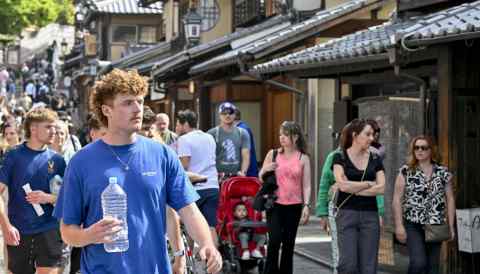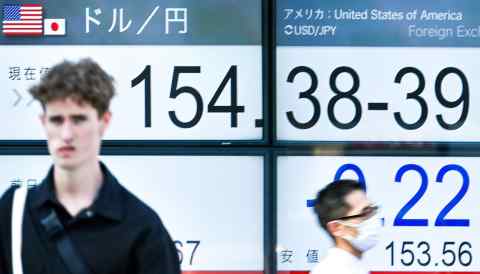
TOKYO (Kyodo) -- Japan's Golden Week holidays started Saturday, with train stations and airports across the country crowded with tourists amid easing fears of COVID-19, while the yen's sharp fall against other currencies has made overseas travel more expensive.
"I'm going on a graduation trip that I couldn't make due to the coronavirus pandemic. I want to enjoy a night safari," Rika Uechi, 26, said at Tokyo's Haneda airport before leaving for Singapore with a friend from university.
In the airport's Terminal 2, tourists flooded the international departures hall, which resumed operation in July last year after being shut for more than three years due to the pandemic.
A woman who works in Japan and was returning to Taiwan said, "I'm worried that the cost of souvenirs will be higher (due to the weak yen) when I return to Japan. I've prepared more money than usual."
It is almost a year since Japan downgraded the threat level of COVID-19 to the same category as seasonal influenza and significantly relaxed health measures that had discouraged people from going out.
"It's still hard to take off my facemask (because of the risk of infection). But I'm looking forward to meeting my parents," Chiho Okamura said at Tokyo Station before departing for Hyogo Prefecture, western Japan, with her three-month-old son.
Over 2.6 million people were booked for domestic flights between Saturday and May 6, almost the same level as the holiday period last year, and 490,000 for international flights, up about 20 percent, airlines said April 19.
As for shinkansen bullet train and other rail services, a total of 2.96 million seats had been reserved for Friday through May 6, up 16 percent from a year earlier, according to an announcement by six Japan Railway operators on April 11. The figure represents a 7 percent increase compared with 2018, before the coronavirus pandemic.
Congestion is expected to peak on May 3 and 6, the railway companies said.




R画像)インバウンド.jpg?width=240&height=137&fit=cover&gravity=faces&dpr=2&quality=medium&source=nar-cms)


